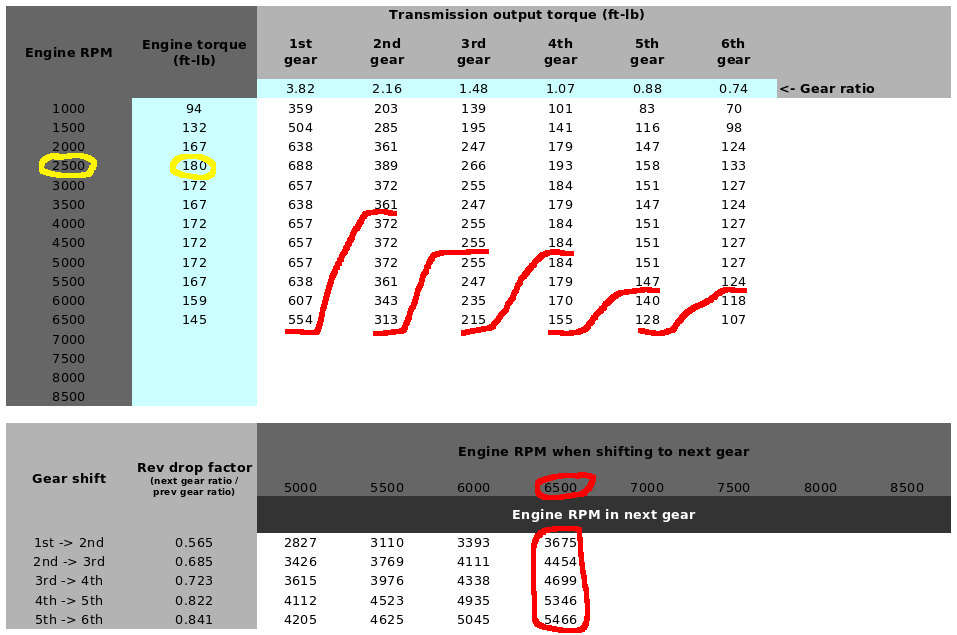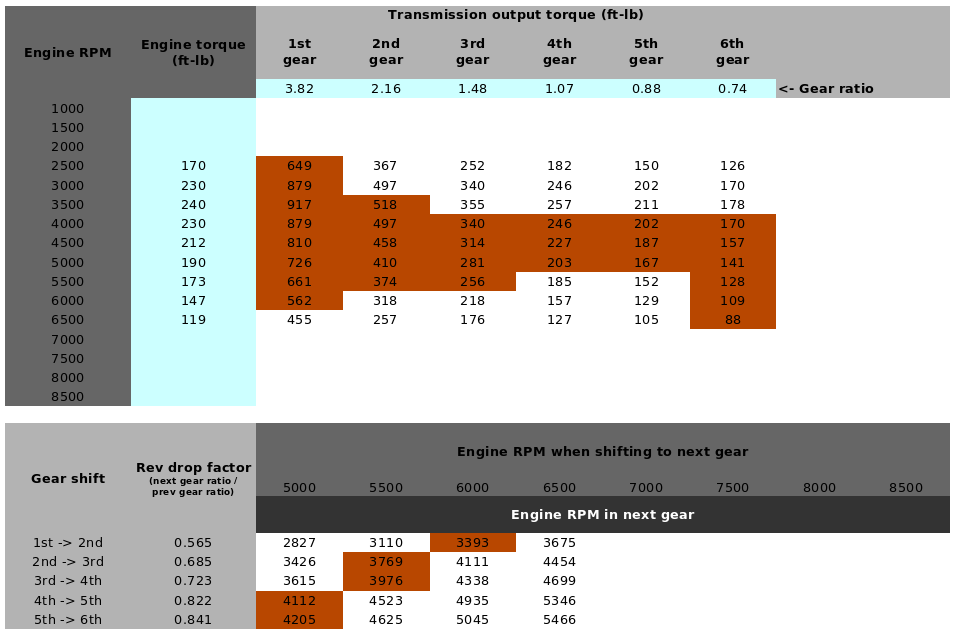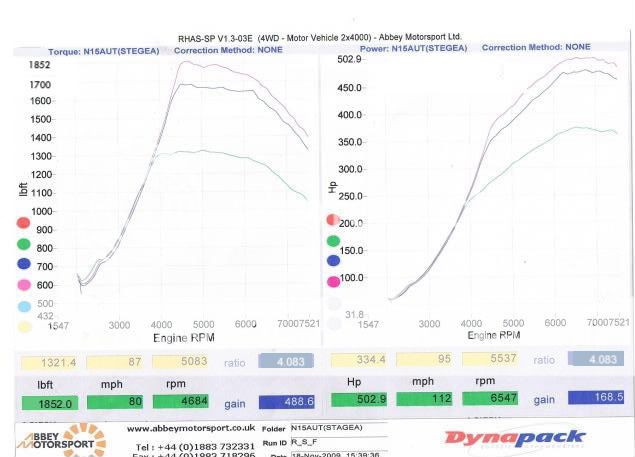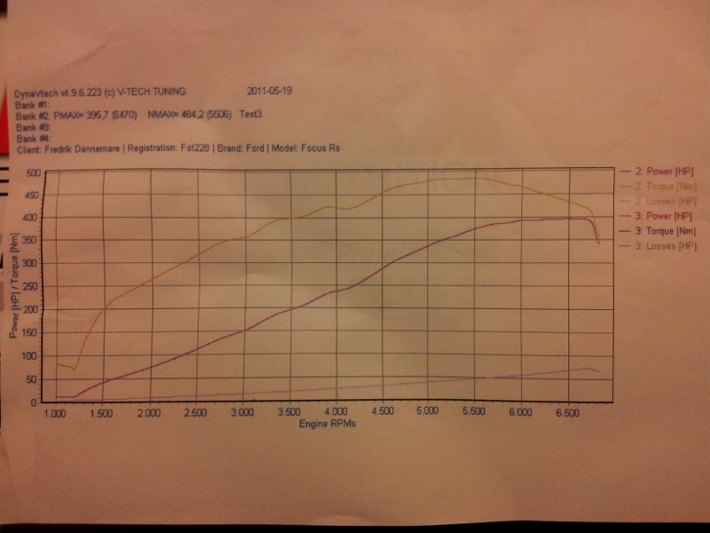jc denton
Track Warrior
Loads of torque or loads of power?
 )
)Nobody understands (stands-under) those kinds of persistently overly scientific explinations on such matters pertaining to that which is at hand...Just vote.
Nobody understands (stands-under) those kinds of persistently overly scientific explinations on such matters pertaining to that which is at hand...Just vote.
Well, I'm not gonna vote as the poll really doesn't make sense as torque and power are bound together by the same math formula. Power is simply a product of torque and revs. Never try to separate them.
Just to make it clear to everybody: If you gain torque at a specific rpm, you gain hp at that rpm as well, and if you lose torque at a specific rpm, you lose lose hp at that rpm as well.
More torque means more power, at any given rpm.
Less torque means less power, at any given rpm.
For outright performance, high-rpm torque is what matters since your needle will simple stay in the upper rev range the whole time as you hunt redline in every gear, so low-end meaty torque is, in this respect, completely useless. Peak power is a much better performance indicator than peak torque.
Of course, the exception to the rule of hunting your redline for maximum acceleration would be if your torque goes down the toilet way before redline (which indicates a crappy tune that doesn't take advantage of gearing).
Bottom line: For the performance enthusiast it is always better to produce high torque at high rpm rather than high torque at low rpm.
Some do not understand the two and get confused. As you say there is a point when the two are of the same value.
There is no such thing as low or high end torque - torque is torque
Not so
The formulas for measuring torque and bhp dictate that the bhp curve crosses the torque curve at around 5252rpm .It has nothing to do with the engine design or how it is tuned .
many turbo engines for example produce rapidly increasing power (bhp) at high revs
even though the torque will have tailed off .
That is engine charachteristics not a crappy tune
And if you are doing things right you tune an engine then choose the gearing to suit its power and the cars weight etc. not the other way round


My godthats the best explination I've ever heard!
Are you in fact a genius?
Transmission output torque delivery with a proper map (factory map for my old Opel Corsa OPC):
It should be clear to everybody where the optimal shift points are (namely at redline).


Thanks for the in depth torque explanation which I neither needed or wanted .
2 the bit about if torque tailis off before the redline it means a crap map
you need to understand that this is a discussion forum not a lesson. People read and reply to what you say not what you meant
Also paragraphs of technwaffle wont impress anyone that understands the topic already.

why not post some pics and spec of your car instead


The point of this vote though was simply to find out what most people prefer; Low end torque or high end torque...
For me its POWEEERRR,Maximum revs, maximum noise, maxumum drama & no more money for petrol




